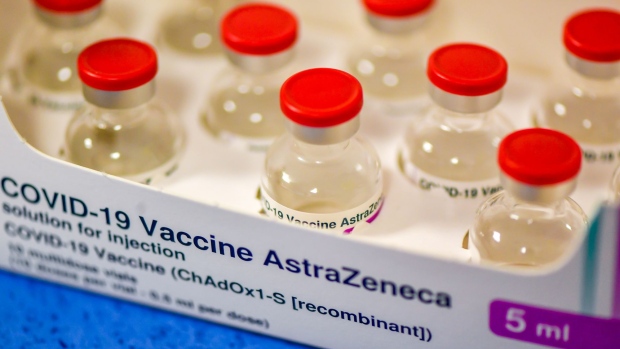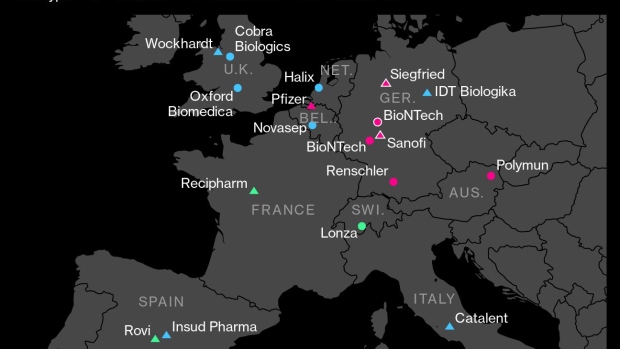Jan 29, 2021
EU poised to ban vaccine exports as shortage crisis mounts
, Bloomberg News

The European Union is poised to ban COVID-19 vaccine exports if drugmakers fail to meet delivery targets within the bloc, stepping up its battle for doses as governments warn of shortages in the weeks ahead.
The crisis is showing little sign of being resolved a week after AstraZeneca Plc warned that issues at a plant in Belgium mean deliveries this quarter will be less than half that initially planned. Countries are being forced to slow the rollout of inoculations, aggravating an already-sluggish pace across the EU.
“We still have some difficult weeks of vaccine shortages ahead of us,” German Health Minister Jens Spahn said in Berlin on Friday.
Also on Friday, Astra bowed to EU pressure and released its vaccine contract with the bloc. The document suggests that U.K. manufacturing sites can be used to meet EU deliveries, which has been a part of the dispute. But it also says that the company is only subject to “best reasonable efforts,” and details on doses and delivery dates were redacted.
Earlier on Friday, European Commission President Ursula von der Leyen made a fresh demand that Astra fulfill its obligations.
“It’s perfectly understandable that they had difficulties at the start,” von der Leyen said on Germany’s DLF radio. “But what we want is a plausible explanation of why these problems are there and then we’ll work together to solve them.”

In Spain, Madrid’s regional administration is halting vaccinations for at least two weeks after receiving less doses than expected, while Ireland’s first-quarter deliveries from Astra will be about half of what it expected.
France said about 5 per cent of appointments for first jabs will have to be delayed by a few days, although none would be canceled. Italy has also slowed its campaign, blaming Pfizer Inc. for sending fewer doses than expected in recent weeks.
The bloc’s COVID-19 vaccine push started at the end of December, later than the U.S. and Britain. As of Friday, 2.5 doses had been administered per 100 people in the EU, compared with 8.3 in the U.S. and 11.9 in the U.K., according to data compiled by Bloomberg.
The commission’s proposal will allow EU states to block exports if a set of pre-defined criteria haven’t been met, according to officials in Brussels. The main condition will be meeting agreed delivery targets within the EU.
EU Trade Commissioner Valdis Dombrovskis said the measures aren’t bans, but only relate to advance purchase agreements.
“Not all pharmaceutical companies have acted in the spirit of full transparency,’ he said. “We must of course ensure that companies are meeting their contractual obligations.”
The measures are due to be published in the afternoon. Around the same time, the European Medicines Agency is expected to announce its approval of the Astra shot for use in the EU.
But anger over the chaotic situation continues to mount. European Council President Charles Michel raised the prospect of effectively seizing control of vaccine production if the commission’s measures fail to get the inoculation program back on track.
--With assistance from Katharina Rosskopf, Flavia Rotondi, Dara Doyle, Rodrigo Orihuela, Nikos Chrysoloras and James Regan.











